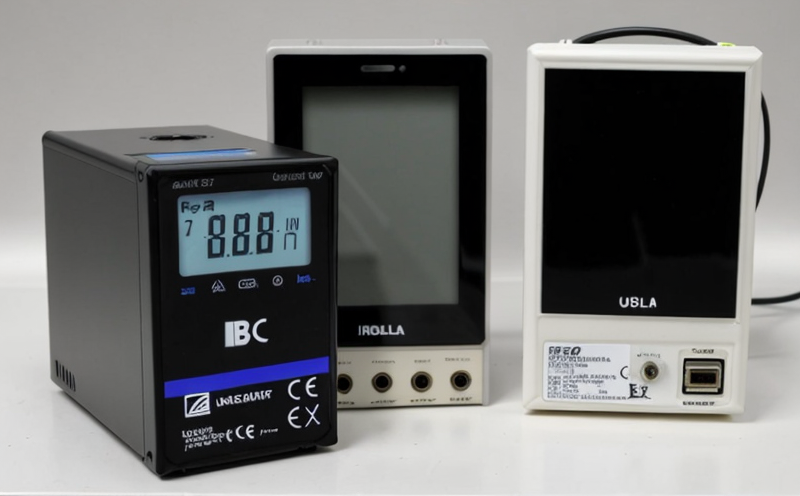GB/T 34013 Consumer Electronics Lithium-Ion Battery Testing at Low Temperatures
The testing standard GB/T 34013 is specifically designed to evaluate the performance of lithium-ion batteries used in consumer electronics devices under low-temperature conditions. This standard is crucial for ensuring that these batteries maintain their functionality and safety when exposed to temperatures below freezing, which are common in various global markets.
The primary focus of this test is to assess how well a battery can discharge current at low temperatures without failing or experiencing significant performance degradation. The standard covers a range of temperature conditions, typically starting from around -20°C down to -40°C. These tests are important for consumer electronics manufacturers as they ensure that the products meet safety and quality standards across different climates.
The procedure outlined in GB/T 34013 involves placing the battery or the device containing the battery into a controlled environment where temperatures can be precisely regulated. The test is conducted by discharging the battery at a specific current rate while maintaining the specified temperature conditions. The performance metrics include voltage, internal resistance, and capacity retention.
Understanding the implications of low-temperature testing on lithium-ion batteries requires an appreciation for how these cells operate under different thermal conditions. Lithium-ion batteries are sensitive to changes in temperature, which can affect their chemical reactions within the cell. At very low temperatures, the electrolyte viscosity increases, leading to higher internal resistance and reduced ion mobility. This can significantly impact the battery's ability to deliver power efficiently.
The significance of this standard extends beyond mere compliance; it plays a vital role in product development and quality assurance processes. By adhering to GB/T 34013, manufacturers can ensure that their products are reliable and safe for consumers who use them in harsh environments. The test results provide valuable data that helps engineers optimize battery designs and improve overall performance.
Furthermore, the insights gained from this testing process contribute to the broader understanding of how lithium-ion batteries behave under different thermal conditions. This knowledge is essential for advancing research into improved materials and technologies that can enhance battery efficiency and durability even further. The standard also supports efforts towards more sustainable practices by promoting the development of longer-lasting and eco-friendly products.
In summary, GB/T 34013 serves as a critical tool in ensuring the reliability and safety of lithium-ion batteries used in consumer electronics devices when exposed to low temperatures. It plays an indispensable role in the quality assurance process for manufacturers aiming to meet stringent international standards while delivering high-quality products that satisfy customer expectations.
Scope and Methodology
The scope of GB/T 34013 is primarily focused on evaluating lithium-ion batteries used in consumer electronics devices under low-temperature conditions. This includes testing the ability of these batteries to discharge current efficiently while maintaining their safety and performance integrity.
- Discharge rate: The standard specifies that the test should be conducted at a constant current or constant resistance discharge rate, which is typically 1C (one times the nominal capacity).
- Temperature range: Testing is performed within a defined temperature range of -20°C to -40°C.
- Duration: Each test run lasts for approximately one hour to ensure consistent results.
The methodology involves placing the battery or device containing the battery into a thermal chamber capable of maintaining precise temperature control. The chamber is designed to simulate real-world conditions that consumers might encounter, such as cold storage facilities or outdoor environments during winter months.
During the test, the battery undergoes continuous monitoring using specialized equipment that measures critical parameters like voltage, internal resistance, and capacity retention. These measurements provide a comprehensive evaluation of the battery's performance under low-temperature conditions.
The results of these tests are then analyzed to determine whether they meet the specified criteria outlined in the standard. Compliance with GB/T 34013 ensures that batteries perform reliably across various temperature ranges, enhancing user satisfaction and product longevity.
Competitive Advantage and Market Impact
The implementation of GB/T 34013 testing contributes significantly to a manufacturer's competitive advantage by ensuring that their products meet or exceed international standards. This not only enhances product reliability but also fosters trust among consumers, leading to increased market share.
By adhering to this standard, manufacturers can demonstrate their commitment to quality and safety, which is increasingly important in today’s globalized market. The ability to consistently produce high-quality products that perform reliably under various conditions sets companies apart from competitors who may not prioritize such testing.
The insights gained from low-temperature testing also drive innovation by providing valuable data on how batteries behave under different thermal conditions. This information can be used to improve battery designs and technologies, ultimately leading to more efficient and durable products. Such advancements can give manufacturers a strategic edge in the market as they continue to push boundaries of what is possible with lithium-ion technology.
Moreover, compliance with GB/T 34013 can open doors to new markets where cold climates are prevalent. Many regions around the world experience freezing temperatures for extended periods, making it essential for manufacturers to ensure their products meet local standards and expectations. By meeting these requirements, companies can expand their reach into these markets, thereby increasing sales opportunities.
In conclusion, embracing GB/T 34013 testing is a strategic move that strengthens a manufacturer’s position in the market. It ensures product reliability, fosters consumer trust, drives innovation, and opens up new markets. These factors collectively contribute to long-term success and sustainable growth within the industry.





